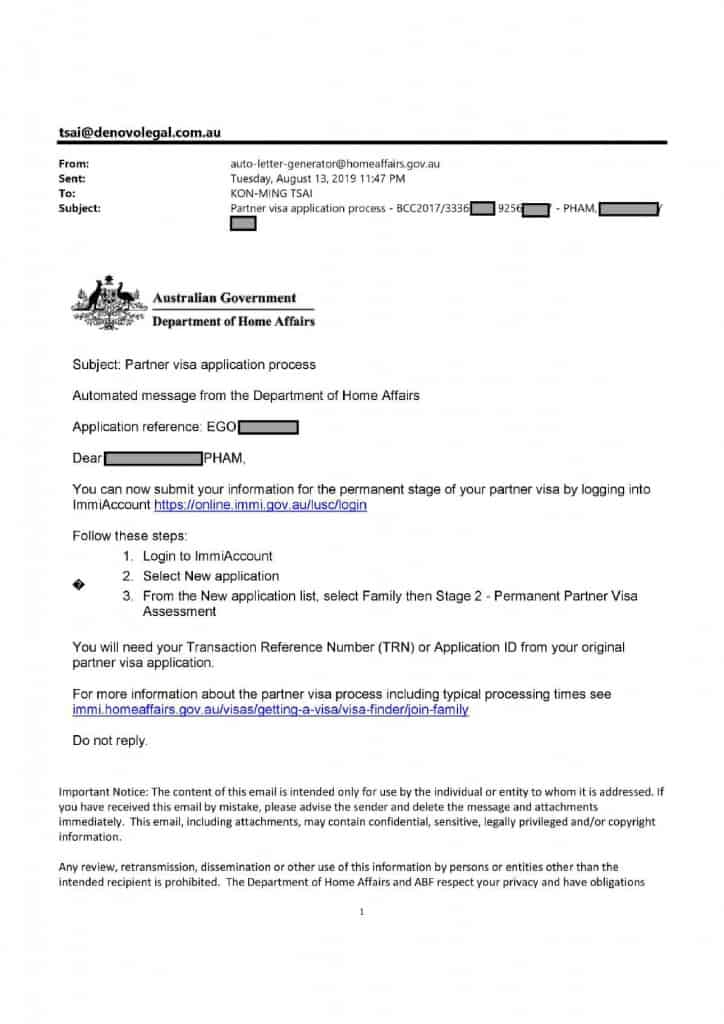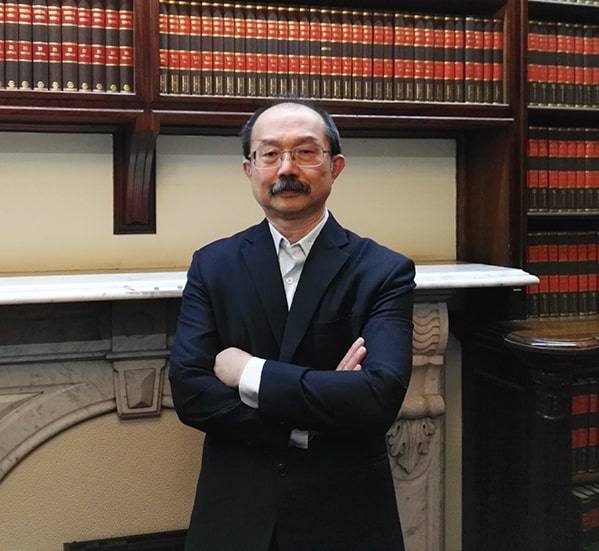
Permanent Partner (Class BC) (Subclass 100) Visa: Who And When To Apply
You can apply for a permanent partner class BC subclass 100 visa if you have previously been granted an offshore temporary partner class UF subclass 309 visa. In addition, you must continue to hold this visa and continued to be sponsored by your spouse or de facto partner. Click here to learn more.
You are usually invited by the Department of Immigration (Department of Home Affairs) to apply for this permanent partner BC 100 visa 2 years after making your offshore temporary partner UF 309 visa application (click here to learn more).

Invited to apply for second stage permanent Partner visa
You must prove your relationship with your sponsoring spouse or de facto partner is genuine and continuing.
You can prove your relationship is genuine and continuing by providing documentary evidence demonstrating the nature of your household, nature of your commitment to your spouse or de facto partner, social aspects and financial aspects of your relationship.
The Department may refuse you a permanent partner BC 100 visa if, for example, you are unable to demonstrate that you and your spouse or de facto partner share financial resources (such as joint bank accounts) or share financial liabilities (such as loans). Similarly, if both of you do not live at the same residential address and you are unable to provide a credible reason why it is necessary for both of you to maintain 2 separate households. In the above examples, the Department may conclude that you have entered into the relationship with your sponsoring spouse or de facto partner solely to gain Australia permanent residency. The Department may refuse to grant you a permanent partner BC 100 visa because they are not satisfied that your relationship is genuine and continuing, therefore you are not the spouse or de facto partner of your sponsor.

Including Dependent Child
You may include your children from a previous relationship, if they have not previously made a combined offshore temporary partner UF 309 visa application with you. However, they must first apply for a Dependent Child Class TK Subclass 445 visa (click here to learn more) to be granted the same visa as you.

Relationship breakdown
If during your relationship your sponsoring spouse or de facto partner died and you have not re-partnered or you suffered from family violence or a member of your (or spouse or de facto partner) family suffered family violence caused by your spouse or de facto partner or if you and your spouse or de facto partner have a child and you have custody or joint custody of, or access to, or has residence order or contact order made by a Court, the Department of Immigration may still grant you a permanent partner BC 100 visa. If your relationship ceased and you experienced one of the above, you should contact an immigration lawyer as soon as practicable to avoid the Department cancelling your visa (click here to learn how you can still apply for permanent Partner visa if you have suffered family violence). If your permanent partner BC 100 visa application is refused, your current visa may be cancelled, and you may have to depart Australia. In addition, you may not be allowed to apply for another partner visa (click here to learn about Partner Class UK Subclass 820 visa) while you are in Australia.
If you are granted a permanent partner BC 100 visa, it is valid for 5 years from the date of grant. Before your visa expired and you wish to travel, you will need to apply for a Resident Return Subclass 155 Visa (click here to learn more).
Australian migration law is complex and difficult to understand, contact our immigration lawyer for a consultation (fee applies) to help you decide if you are eligible to apply for a permanent partner Class BC Subclass 100 visa (click here to find out how an immigration lawyer or registered migration agent can help you). You may also refer to our FAQs for answers regarding visa application or visa cancellation by clicking here.


041 222 4020 or WeChat: AUDvisa
This article is not intended to be or taken as migration legal advice. The author of this article disclaims any liability for any action or omission on the information provided or not provided in this article. You should always consult an immigration lawyer or a registered migration agent to form an informed opinion on your immigration matter.



